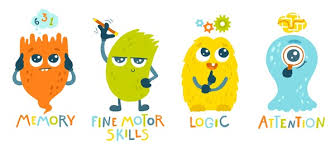When I was in 4th grade, math was my greatest challenge. My strict teacher often scolded me for not doing my homework, and I found math to be a daunting subject. One Sunday afternoon, my mom made me take an afternoon nap, but I didn't want to sleep or study on my precious Sunday. I was bored, waiting for my friend to come over, so I decided to visit my grandmother upstairs. She always had the best stories. While wandering in my grandmother’s room I discovered an old metal box with a colourful device inside. Excited, I woke my grandmother to ask about it.
She smiled and said, "This is an abacus, a magical tool that makes math fun and easy." Intrigued, I started learning how to use it. Moving the beads along the rods made math come to life. With my grandmother's help, I practiced every day. Within a few months, my teacher was amazed to see me doing my homework and improving my grades. Math became my favorite subject, and I started excelling in all my subjects with better focus and concentration.
The abacus is more than just a tool for calculations; it offers numerous cognitive benefits that enhance brain development. Here’s how learning the abacus can make a significant difference:

Memory Marvels
- Short-term Memory: Regular use of the abacus improves short-term memory by requiring learners to remember bead positions and intermediate results.
- Long-term Memory: Over time, this practice strengthens long-term memory retention.
Focus Power
- Sustained Attention: The need to focus on bead manipulation and calculations enhances sustained attention and reduces distractibility.
- Selective Attention: Learning to filter out irrelevant information while using the abacus sharpens selective attention.
Motor Magic
- Precision: Manipulating the small beads on an abacus enhances fine motor skills and hand-eye coordination.
- Tactile Skills: Engaging with the tactile aspects of the abacus contributes to sensory integration and motor planning.
Numerical Genius
- Conceptual Clarity: Abacus learning fosters a deep understanding of number concepts and place value.
- Pattern Recognition: Identifying patterns in bead arrangements enhances pattern recognition skills.
Analytical Awesomeness
- Problem-Solving Skills: Solving arithmetic problems on an abacus involves breaking down complex calculations into smaller, manageable steps, encouraging logical thinking.
- Cognitive Flexibility: Abacus practice helps learners switch between different tasks and adapt to new problem-solving strategies.
Neurodevelopmental Benefits
- Brain Stimulation: Regular abacus practice stimulates brain regions associated with mathematical skills, enhancing overall cognitive functions like memory, attention, and problem-solving.
Cross-Modal Integration
- Visual and Motor Integration: The abacus encourages the integration of visual information with motor actions, improving overall cognitive coordination.
- Auditory Integration: Listening to instructions and processing auditory information while using the abacus boosts auditory processing skills.
Bilateral Brain Development
- Hemispheric Coordination: Using both hands to manipulate the abacus beads promotes coordination between the left and right hemispheres of the brain.
Enhanced Creativity: This bilateral stimulation can lead to improved creative thinking and problem-solving abilities
My journey with the abacus not only transformed my approach to math but also boosted my overall cognitive abilities. Thanks to that Sunday afternoon with my grandmother and the magical abacus, I discovered a love for math and saw remarkable improvements in my academic performance and brain development. Learning the abacus can provide these same benefits to anyone willing to explore its potential, making it a valuable tool for both education and cognitive growth.